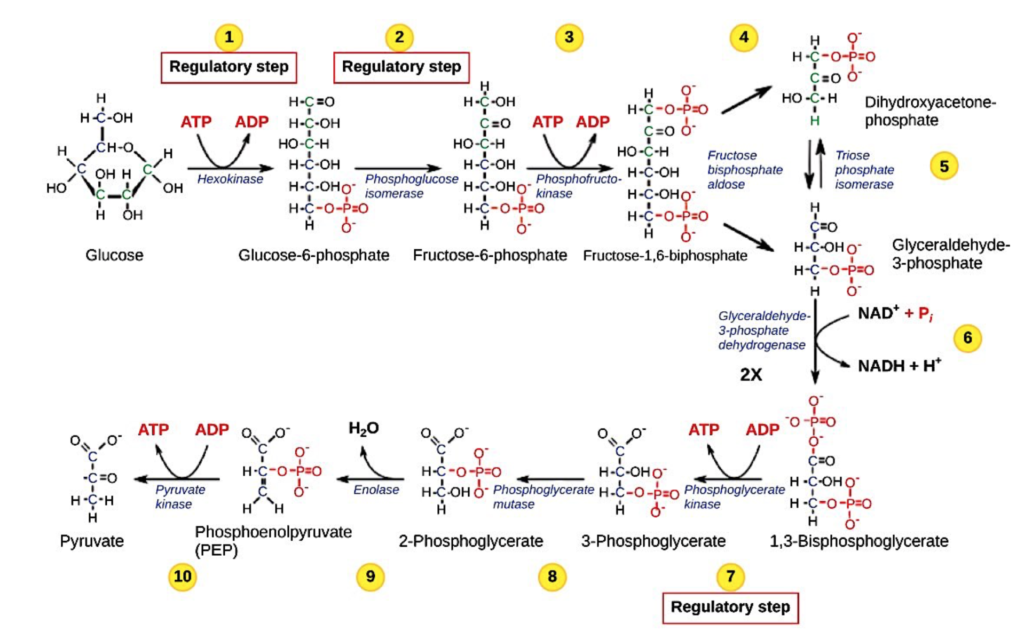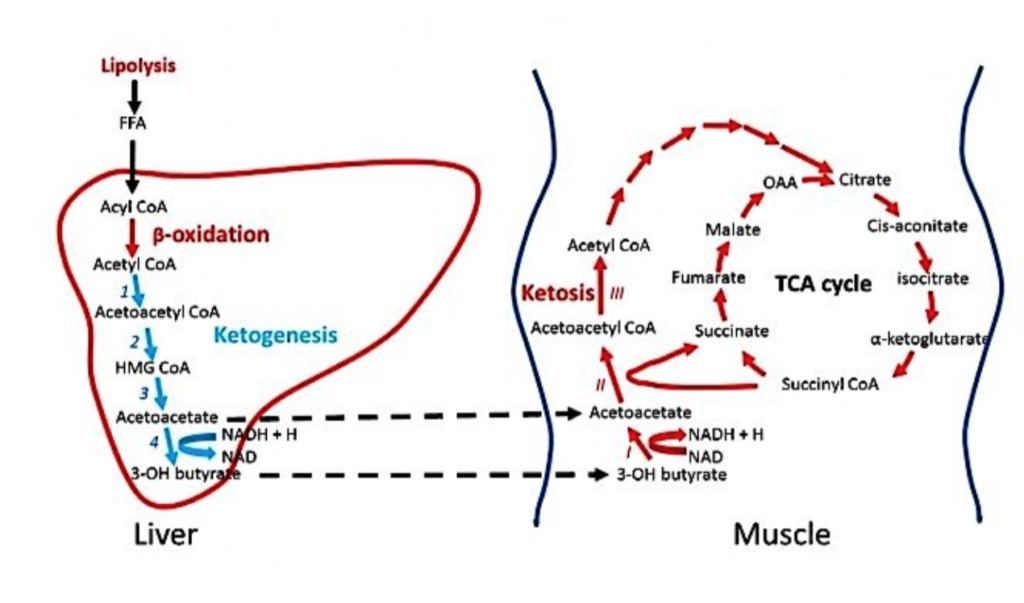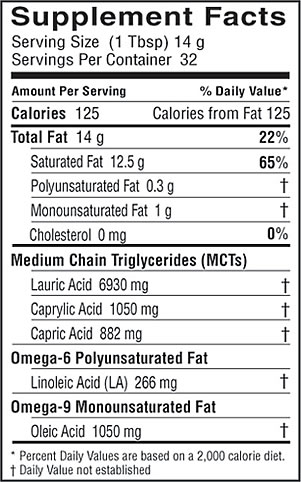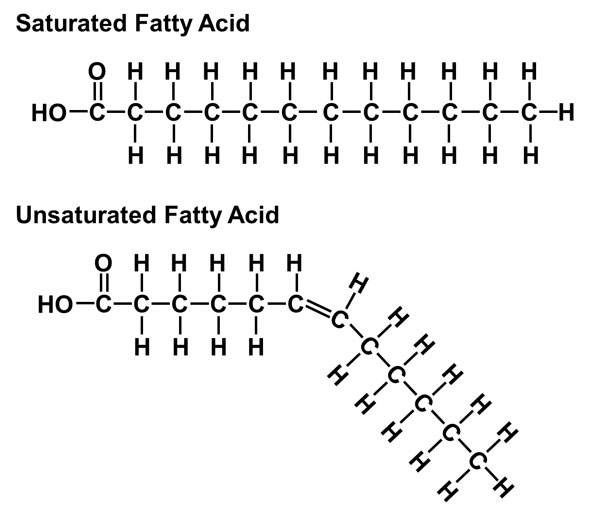Many if not most JC students chose to only focus on gaining content mastery to improve their grades. Whilst that is important, it is not the only thing that can help the student in their exam performance. One area that is often overlooked is what they eat. I help my students in this area and I refer to it as the exam diet.
Do you feel drowsy after a meal? Imagine that occurs when you are just about to head into the exam hall!
If the mind is not in the most agile state, how good will the performance be even if the student have content mastery?
And on this note, my past group of students used a low carb high fat diet to help with exam performance.
The exam diet: the science behind it
The basis of the idea is that per unit mass, fats (comprising of triglycerides) store far more energy than glycogen can.
Each triglyceride consists 3 fatty acids. Each fatty acid can have between 8 to over 30 hydrocarbon chains. These hydrocarbon chains play an important role in cellular respiration. The more times decarboxylation occurs for each of these carbons from the hydrocarbon skeleton, the more potent energy yield subsequently.
Per 100g of glucose yields 9.4kg of ATP. With a single fatty acid in a triglyceride molecule? 10.5kg.
Salway JG. Metabolism at a Glance. Oxford: Blackwell Science, 1999.
These fatty acids convert to ketone bodies and distribute to different tissues including more importantly neurons in the brain. And are an alternative fuel source to glucose.
One reason why ketone bodies has a higher yield versus glucose is because the latter requires 10 steps and enzymes before becoming acetyl-CoA. This is not accounting for energy requirements to synthesize the enzymes that catalyses the reactions at each step yet. The diagram below illustrates my point.

Ketone bodies bypasses all of them requiring only 3 steps. As you can see in the diagram below.

Far less time and energy usage and far more time producing ATP. Therefore, no drowsiness after meals as well as brain fog.
The exam diet: the benefit
Because the exam diet helps my students gain brain clarity.
This helps students who are studying to have deep learning and productive times.
Which in turn makes it easier for them to achieve subject mastery and therefore exam prep subsequently.
I tell my students to have a cheat day once a week on which they can eat anything they like.
This makes it easier for them to extend their diet through to the exams at least.
The response when they are on the cheat day is how drowsy they feel due to the carbohydrates.
This contrast allows them to appreciate how food can modify brain behavior.
And this can subsequently be advantageous if modified for performance instead!
The exam diet: the caveat
The main disadvantage of the exam diet is that it is quite a hassle checking what you can or cannot eat. This is because there are a lot of hidden carbs in commercial food preps.
So I choose instead to cook a variety of meals at home where I can control what I put in my mouth.
This requires a bit more effort but ensures you stay in ketosis. Because any drastic increase in blood glucose may push you out of it. And you lose the benefits.
Also, getting into ketosis takes time. One can’t simply eat a fatty meal and hope to get into ketosis.
Finally, people who start the diet for the first time may experience the ‘keto-flu’ as they transit into ketosis. This is especially true for people who have insufficient salt intake.

The mechanism and solution is explained below 👇🏻

The exam diet: how to

In the morning, I will kick start with a blend of coconut oil and grass-fed butter (Anchor) into my tea/coffee depending on my mood. The MCT oil I use is a special distillate for caprylic and capric oils found in coconut oil. These are medium chain triglycerides (MCTs) of 8-10 hydrocarbons which makes their absorption faster allowing me to utilize them for energy without delay. I don’t use brands that don’t label how much of which exact MCTs it contains.
I don’t use coconut oils directly because only 20% of the oil are desirable MCTs.
And that’s all I have for breakfast!
Sometimes, if I am outside I will order a keto-coffee instead at Starbucks. Here’s how I order mine: short flat white, replace milk with half and half (or which is permissible without extra charges). Heavy whipped cream and water. Then, mix in a serving of butter they use for sandwiches.
There are many reasons why I have this type of ‘breakfast’.
The video below summarizes it.

In the late afternoon, I will scramble eggs. And by dinner time, a big steak or equivalent. In between when I snack, I will make a keto bread/cake.
The exam diet: know the bad fats
Before we end though, I want to talk a bit about the some surprising facts about fats.
This is especially important for students who want to try out the exam diet for academic success.
There are many types of fats and not all of them are great. In fact many vegetable oils are really bad! Many don’t know this. Trans-fats are really awful too but many already know about it.
So let’s focus on the vegetable oils.
These oils are typically polyunsaturated.
Unsaturated fats are those that have a C=C bond in their carbon skeleton. I compare the structure to a saturated fatty acid below for easy reference.

So if there are several of them, they are polyunsaturated fatty acids (PUFA).
The problem with these fats are that they are really fragile. Heat, light and oxygen can lead to modification of its structure resulting in inflammatory end products. And inflammation factor into many medical diseases directly such as heart disease.
And the modern diet is now full of PUFAs. Because they are much cheaper. So restaurants start using them for all kinds of cooking.
If you want to know more, the video below is a great overview 👇🏻

The exam diet: bottomline
If you have read all the way through until here. It means you are really serious about your exam performance. Great attitude!
It is not going to be easy but you will begin to reap the rewards the moment you go into ketosis. Because you will realize you suddenly have much more energy and clarity of mind that will in turn aid your exam performance/preparations. All the best for the upcoming exams!